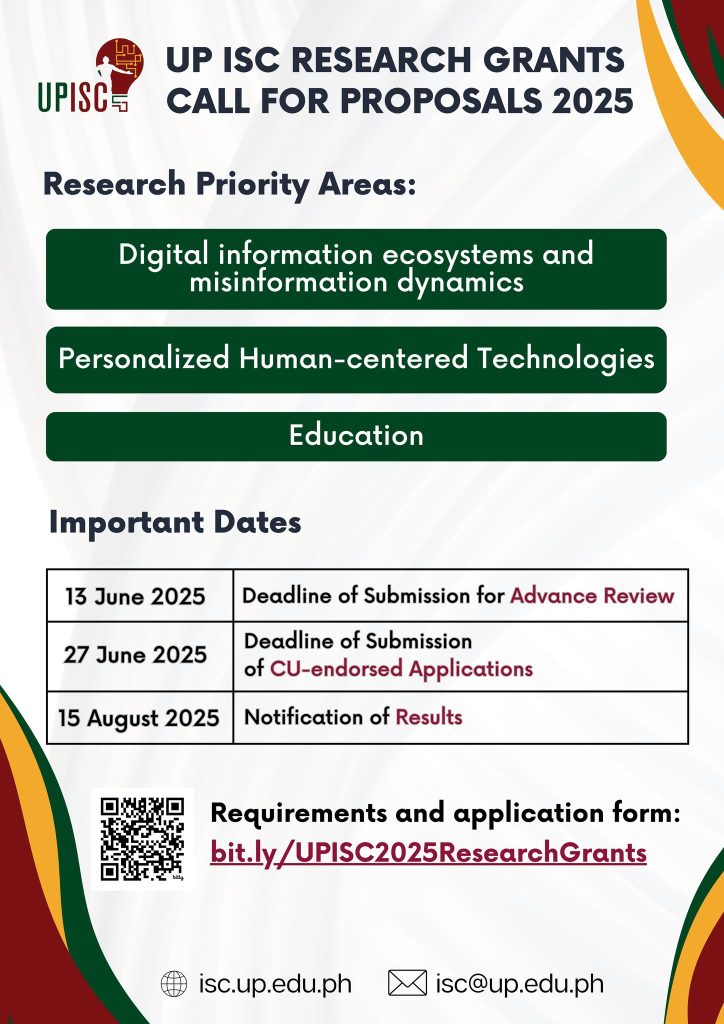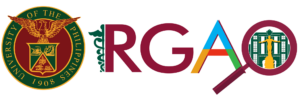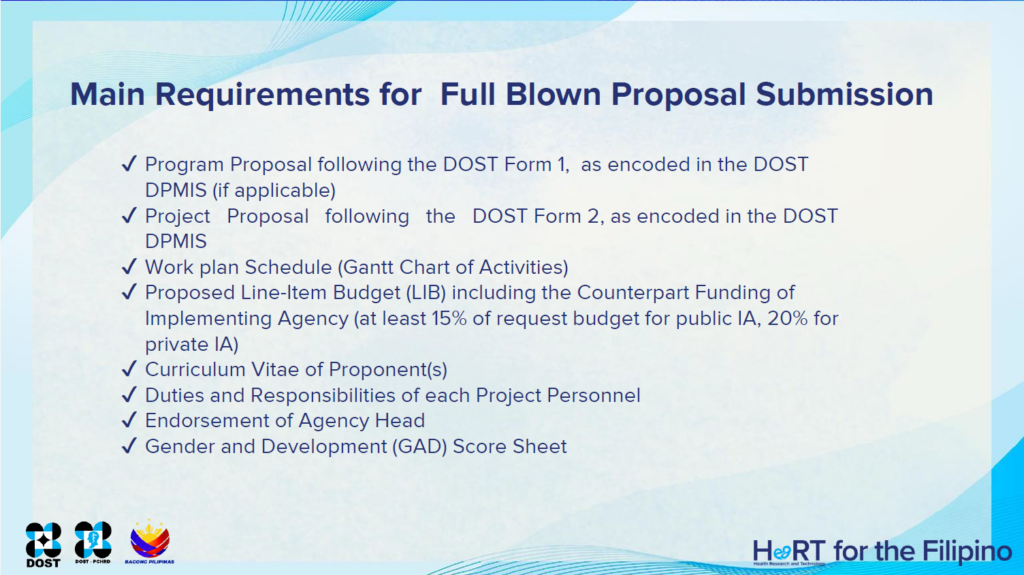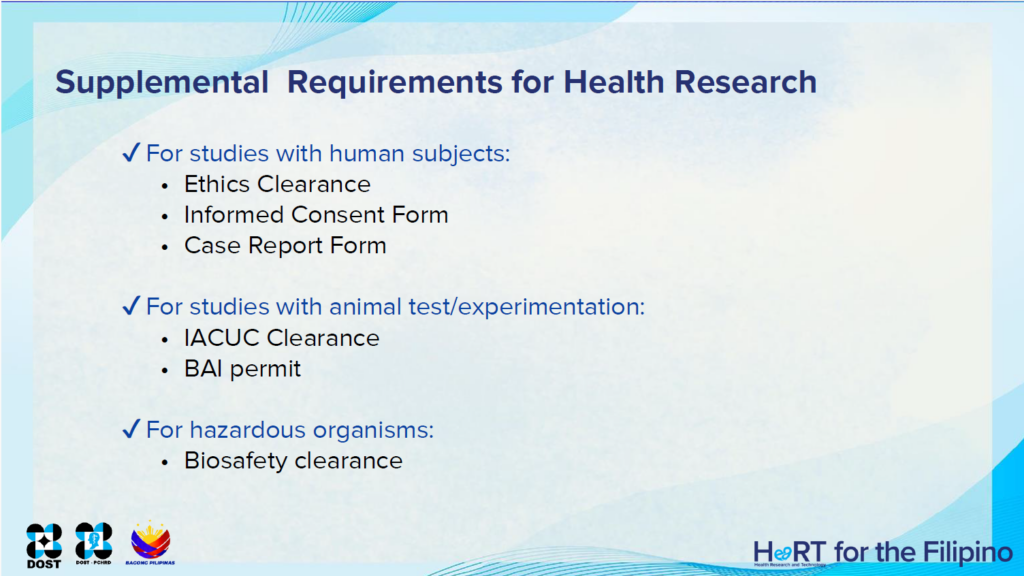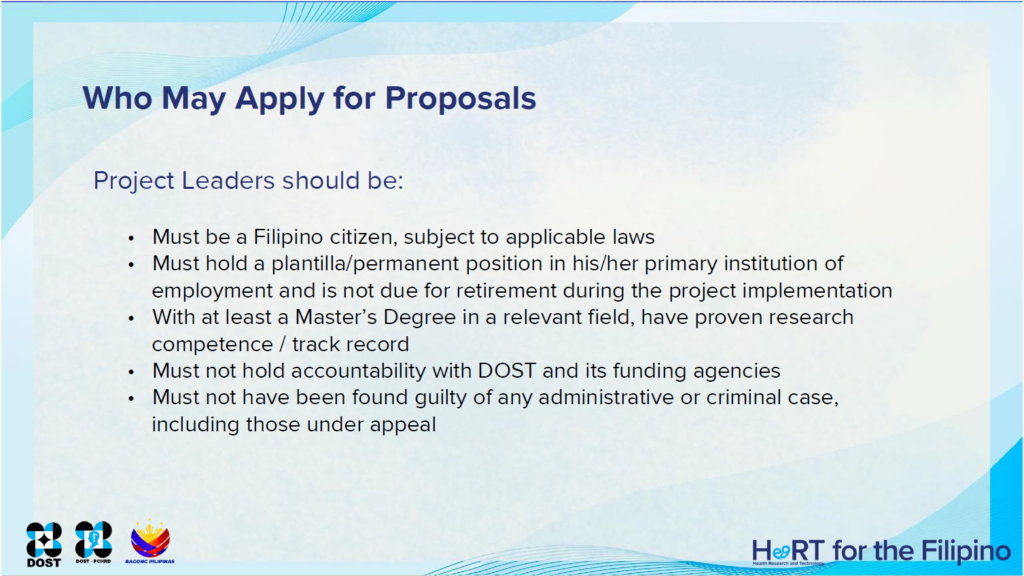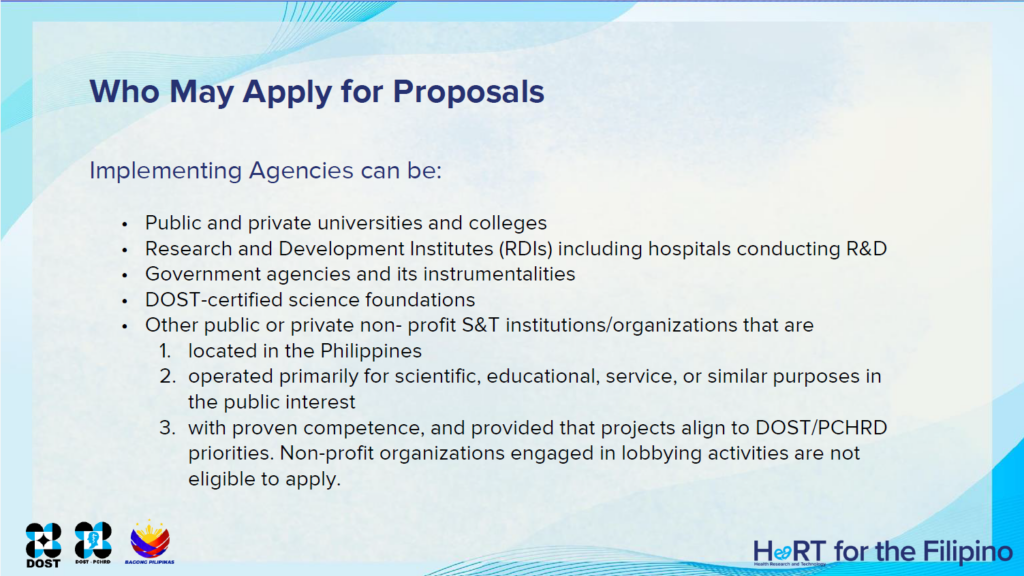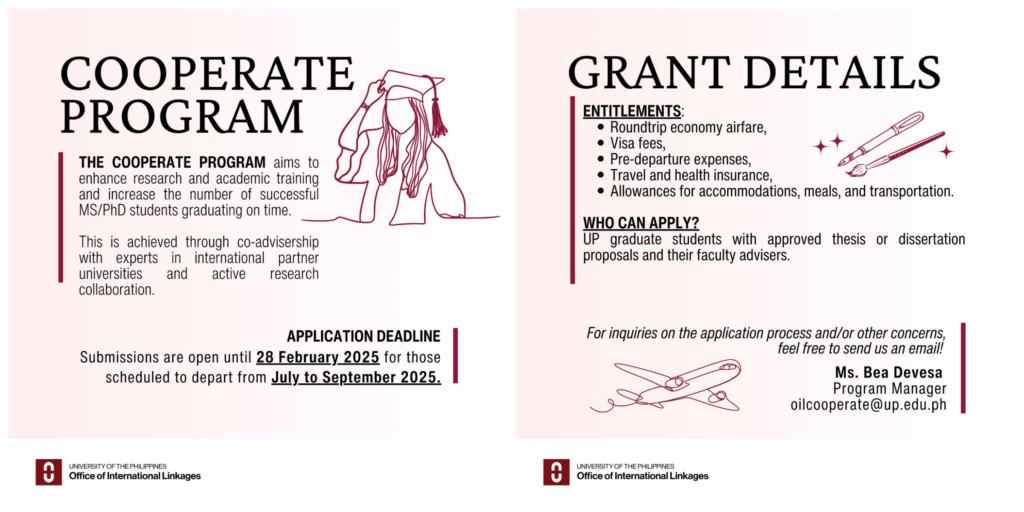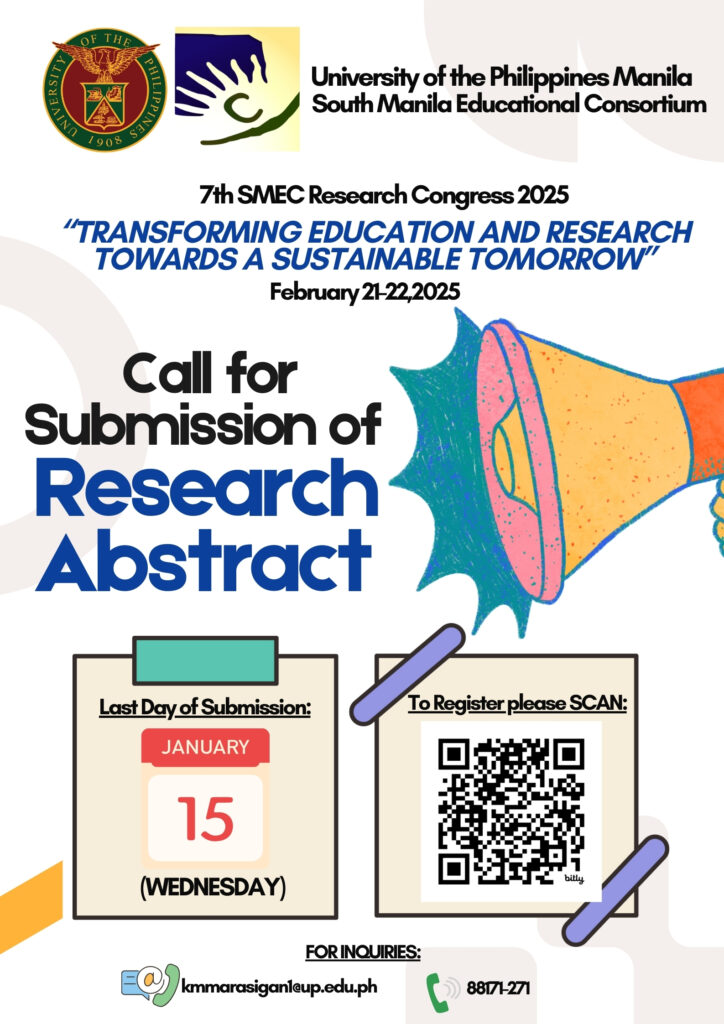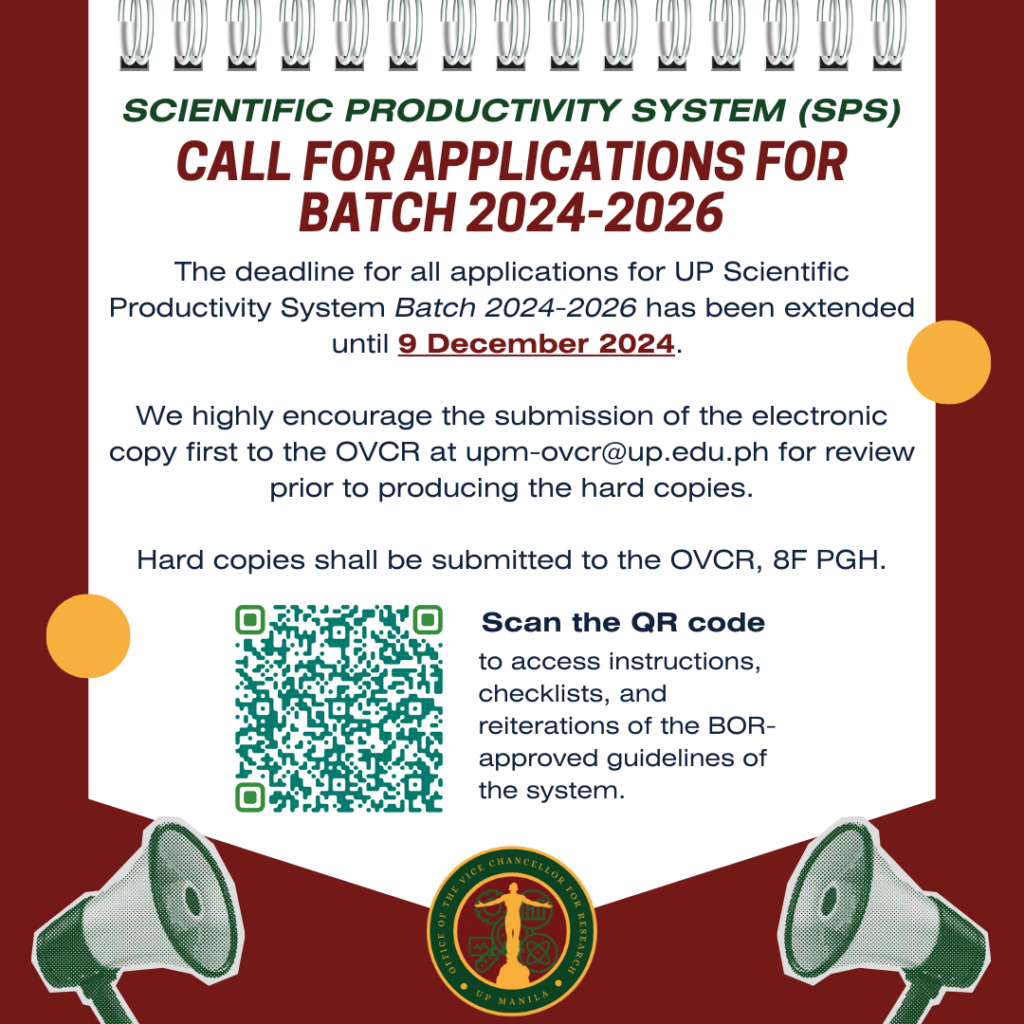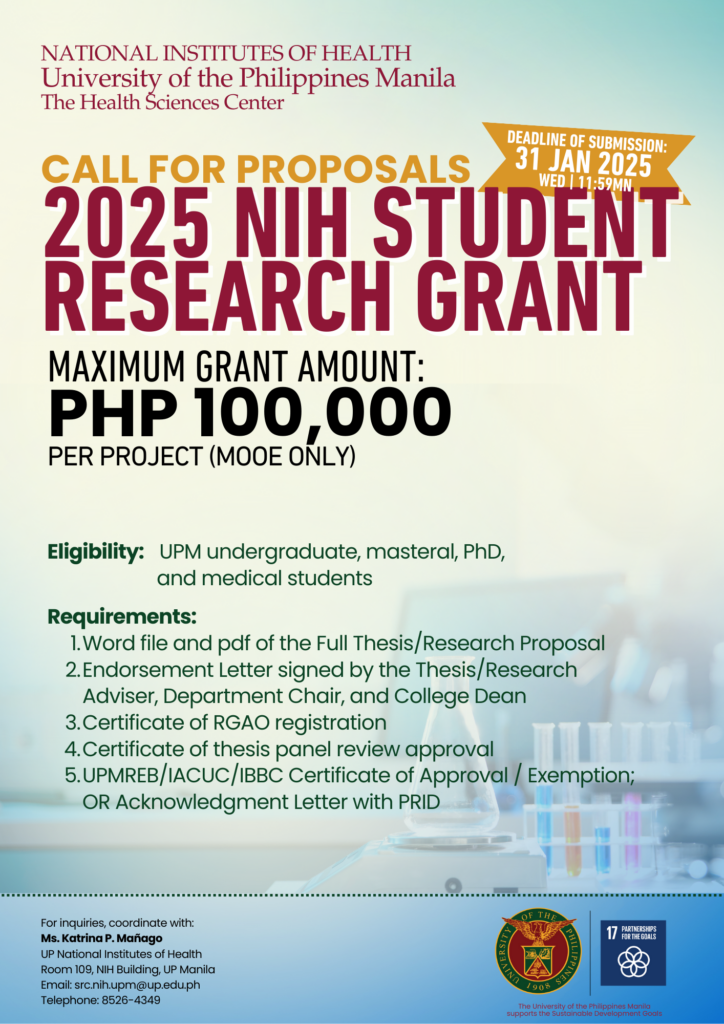We are delighted to announce that the e-ASIA Joint Research Program (hereinafter referred to as the “e-ASIA JRP”) aims to develop a vibrant and collaborative research community in Science and Technology, to promote innovation in the East Asian region, and to contribute to the region’s economic development.
Participating Member Organizations (listed in alphabetical order)
1) Indonesia: National Research and Innovation Agency (BRIN)
2) Japan: Japan Science and Technology Agency (JST)
3) New Zealand: Ministry of Business, Innovation and Employment (MBIE)
4) Philippines: Department of Science and Technology (DOST-PCIEERD)
5) Thailand: Program Management Unit for Human Resources & Institutional Development, Research, and Innovation (PMU-B)
Eligibility Requirements:
- Any Filipino, public, or private entity with proven competence may apply for funding support if projects fall under the specific research areas.
- Filipino researchers should be connected with any public and private universities and colleges and Research and Development Institutes. The eligibility of the Philippine Principal Investigator shall be determined by DOST-PCIEERD based on his/her readiness in terms of technical, managerial, financial, and marketing capabilities (if necessary). As such, the proponent shall submit documents/proof of the following: credentials/proof of capability, track record, and endorsement of his/her institution, must not have any existing accountability with DOST (Department of Science and Technology) and its agencies particularly technical and financial reports, and must not have pending administrative or criminal case involving financial transactions. The Philippine Principal Investigator must possess at least a master’s degree in a relevant field.
Support
Three (3) projects could be supported under this call. Budget range of US $300,00 –
310,000 per project for three (3) years shall be provided by DOST-PCIEERD to support
the collaborative projects.
Application
Interested parties should submit their proposals using the DOST-GIA proposal format through the DOST e-proposal portal, http://dpmis.dost.gov.ph before the Closing Date on 29 March 2024, 5:00PM: Together with the proposal, DOST-PCIEERD requires submission of a formal letter of intent from the applicant and an endorsement from the authorized head of organization. The authorized head of the organization will also be the principal signatory of the organization for the research agreement award.
Evaluation of Project Proposals
Review teams (Project Managers, Technical Experts Team, or Technical Panel, and
DOST-PCIEERD Management Team) will evaluate each proposal based on the
following criteria:
Alignment to the Call, no duplication with previous or existing researches, scientific merit, technical feasibility, soundness of methodology, financial viability (commensurate to intended output and potential impact), potential socio-economic merits, environmental impact (e.g. does not pose significant adverse to the environment or will/can improve environmental conditions), and marketability (e.g. potential adoption/use of the industry (manufacturer) and other partners). Each proposal will be given a numerical score and will be ranked accordingly. Preliminary funding recommendations will be forwarded to the DOST-PCIEERD Governing Council based on this ranking.
The DOST-PCIEERD Governing Council, based on the rankings and preliminary recommendation of the DOST-PCIEERD evaluation teams, will make final funding decisions for the DOST-PCIEERD counterpart before forwarding the proposals to the joint panel of the participating Member Organizations and the e-ASIA JRP Board Meeting for final funding decisions.
Reporting
Semi-annual progress reports and a detailed final report will be required. Semi-annual progress reports summarize technical progress, planned activities for next semester and summary of expenditures. The final report shall be submitted within 90 calendar days after the performance period is completed. Required forms are downloadable from the DOST-PCIEERD website and may be provided by the DOST-PCIEERD upon the awarding of the agreement to eligible applicants.
Contact Information
DR. ENRICO C. PARINGIT
Executive Director
Philippine Council for Industry, Energy and Emerging Technology Research and
Development (PCIEERD) Department of Science and Technology (DOST)
4th and 5th Levels, Science Heritage Building, DOST Compound,
Gen. Santos Ave., Bicutan, Taguig City
E-mail: oed@pcieerd.dost.gov.ph
For further details, please see document below:
